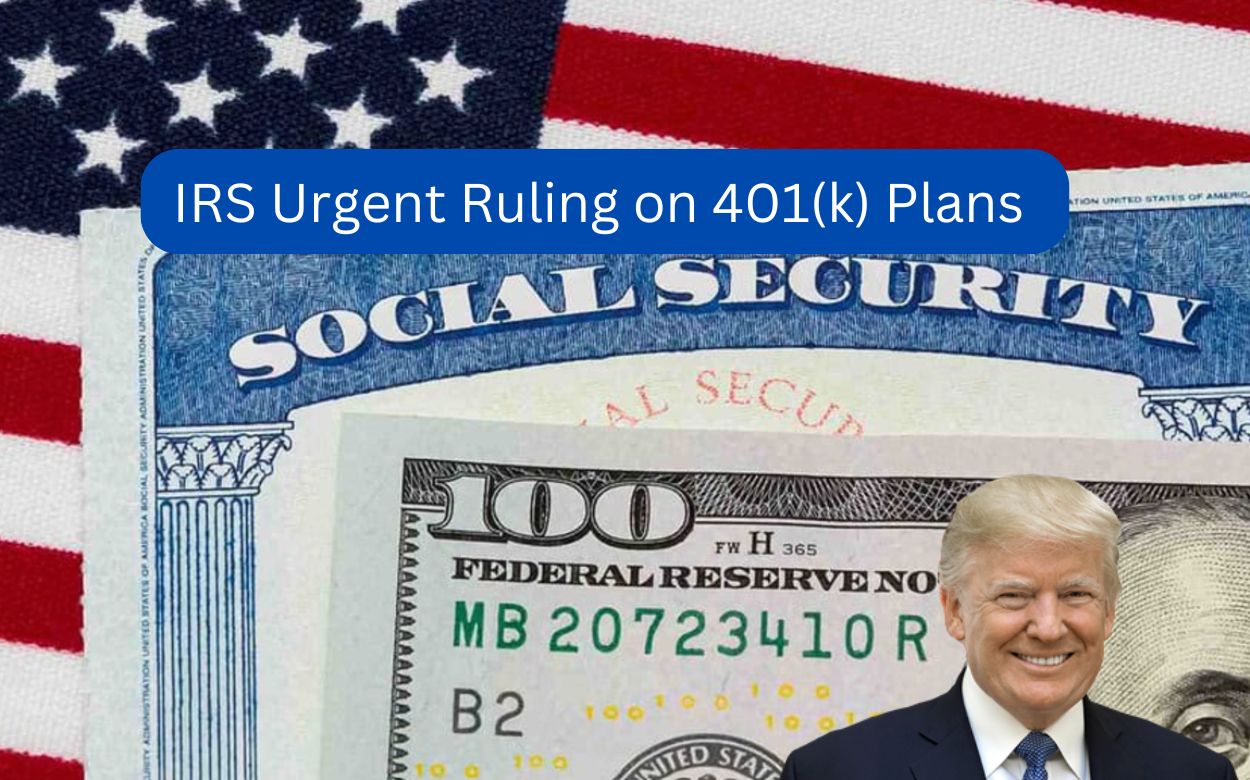Official Announcement: The IRS issued an urgent ruling on 401(k) plans that would impact millions of Americans
Saving for retirement is a critical component of financial planning, but many employees struggle to prioritize it owing to pressing obligations. To solve this issue, the IRS recently approved a creative solution for an unnamed company, allowing employees to direct their employer-matched 401(k). Let’s investigate this experimental alteration and its potential benefits and risks.

Breakout of IRS Ruling:
The anonymous organization that requested this adjustment discovered that employees were not maximizing employer-matched 401(k) contributions. In response, the IRS approved a scheme that allows employees to choose where their employer match should go at the beginning of each year. Options include:
- Traditional 401(k) accounts
- Student loan payments
- Health reimbursement accounts
The Possible Effects
While this IRS ruling only affects the unnamed company, it may open the way for broader adoption. However, this campaign raises concerns regarding its impact on retirement preparedness.
Perks for employees:
- Debt Reduction: Many workers have considerable financial issues, including student loans and medical debt. Allowing employer matches to target these loans could help employees reduce their amounts faster and prevent years of accumulating interest.
- Flexible financial priorities provide employees with more discretion over managing their financial burdens. For individuals drowning in debt, the ability to reroute funds can be a lifeline.
- Addressing immediate financial demands can help employees attain long-term stability, allowing them to prioritize retirement planning later.
Obstacles of Redirecting Contributions:
- Lost Retirement Growth: Compounding interest drives growth in retirement investments. Diverting contributions from 401(k) accounts may result in reduced balances in retirement, leaving workers underprepared for their golden years.
- Student loans and medical debt often have tax-deductible interest, making repayment less pressing financially. Employees who do not contribute to their 401(k) may miss a more significant return.
- According to Federal Reserve data, one-quarter of Americans do not have any retirement savings. The median retirement savings for households aged 55 to 65 is $185,000, much less than required for a secure retirement. Redirecting funds away from retirement could exacerbate the situation.
Current participation rates:
According to a Fidelity survey, 22% of employees fail to claim the full company match on 401(k) plans. If successful, it might pave the way for a more tailored approach to employee benefits, allowing people to balance their immediate and long-term financial demands. This IRS-approved flexibility is an intriguing experiment, but it is too earlyl. The findings from this undisclosed organization will shed light on whether employees fully utilize the new model and whether it eventually benefits their financial well-being. Until then, the broad adoption of these reforms is doubtful.


Comments are closed, but trackbacks and pingbacks are open.